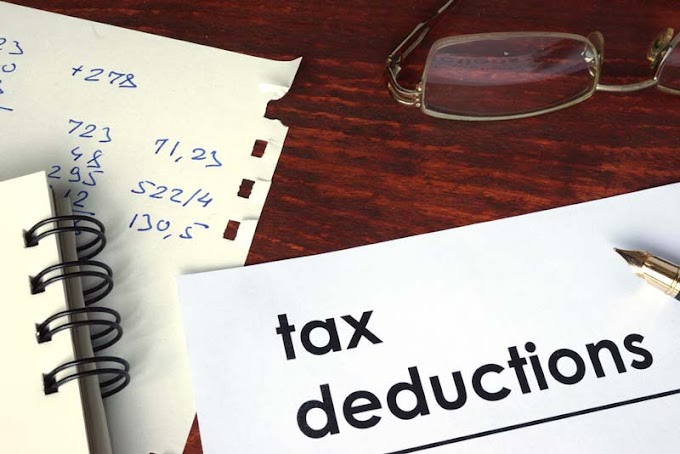Debt consolidation is a popular option for individuals and households struggling with multiple debts from various sources such as credit cards, personal loans, and medical bills. It is a process of combining multiple debts into a single loan, making it easier to manage and pay off the debt. In this article, we will discuss the basics of debt consolidation, including the pros and cons, different options available, and how to determine if it is the right choice for you.
First, it's important to understand the difference between debt consolidation and debt settlement. Debt consolidation involves combining multiple debts into a single loan, while debt settlement involves negotiating with creditors to reduce the total amount of debt owed. Both options can help reduce the overall amount of debt, but they have different implications for credit scores and long-term financial health.
One of the main advantages of debt consolidation is that it simplifies the process of managing debt. Instead of dealing with multiple creditors, interest rates, and due dates, consolidating your debt allows you to make one payment to a single lender. This can make it easier to budget for and stay on top of your debt repayment.
Another advantage of debt consolidation is that it can lower the overall interest rate on the debt. By consolidating high-interest credit card debt into a single loan with a lower interest rate, you can save money on interest charges over time. This can help you pay off your debt faster and potentially save thousands of dollars in interest charges.
Debt consolidation can also improve your credit score over time, as long as you make your payments on time and in full. When you consolidate your debt, you may be able to negotiate a lower interest rate, which means you'll pay less in interest charges each month. This can free up more of your income to put towards paying down the principal balance of your debt, which can help improve your credit score.
However, it's important to be aware of the potential drawbacks of debt consolidation as well. One of the main disadvantages is that it doesn't address the underlying issues that led to the accumulation of debt in the first place. If you don't address the habits and behaviors that got you into debt, it's likely you'll end up in the same situation again.
Another potential drawback is that debt consolidation can be a form of refinancing, which means you're taking on new debt to pay off old debt. If you're not careful, you could end up with even more debt than you started with, especially if you don't change the habits that got you into debt in the first place.
There are a few different options available when it comes to consolidating debt. One popular option is a personal loan. Personal loans are unsecured loans that can be used for a variety of purposes, including debt consolidation. They typically have a fixed interest rate and a fixed repayment term, which can make it easier to budget for and manage the debt.
Another option is a balance transfer credit card. Balance transfer credit cards allow you to transfer the balance of high-interest credit card debt to a card with a lower interest rate. This can save you money on interest charges over time and help you pay off the debt faster. However, it's important to be aware that balance transfer credit cards often come with a transfer fee, and the low interest rate is usually only for a promotional period.
A home
equity loan or line of credit is another option for consolidating debt. These
loans use the equity in your home as collateral and typically have lower
interest rates than unsecured loans. However, these loans also come with higher
risk, as you're putting your home on the line to pay off your debt. If you're
unable to make the payments, you could end up losing your home.
Another option for consolidating debt is a debt management plan (DMP). A DMP is a repayment plan that's set up through a credit counseling agency. The agency works with your creditors to lower your interest rates and monthly payments. The goal of a DMP is to help you pay off your debt in full within 3-5 years. However, it's important to note that a DMP can have a negative impact on your credit score, as it may be reported as a form of default on your credit report.
Finally, debt settlement is an option for consolidating debt. This process involves negotiating with creditors to reduce the total amount of debt you owe. The goal is to pay off the debt for less than the original amount. However, it's important to be aware that debt settlement can have a negative impact on your credit score, and it may not be a viable option for everyone.
When considering debt consolidation, it's important to do your research and understand the pros and cons of each option. It's also essential to have a clear plan in place to pay off the debt and avoid falling into the same situation again.
To determine if debt consolidation is the right choice for you, consider the following:
- ·
Your current debt load and interest rates
- ·
Your current income and expenses
- ·
Your credit score
- ·
Your ability to change the habits and behaviors
that led to the accumulation of debt
If you're
struggling with high-interest credit card debt and are unable to make the
minimum payments, consolidating your debt could be a good option to help you
pay off the debt faster and save money on interest charges. However, if you're
able to pay off the debt on your own and don't want to take on new debt, it may
be best to avoid consolidation.
In
conclusion, debt consolidation can be a powerful tool for simplifying the
process of managing debt and saving money on interest charges. However, it's
important to understand the pros and cons of each option and to have a clear
plan in place to pay off the debt and avoid falling into the same situation
again. By considering your current financial situation, evaluating your
options, and understanding the potential drawbacks, you can make an informed
decision about whether debt consolidation is the right choice for you.







